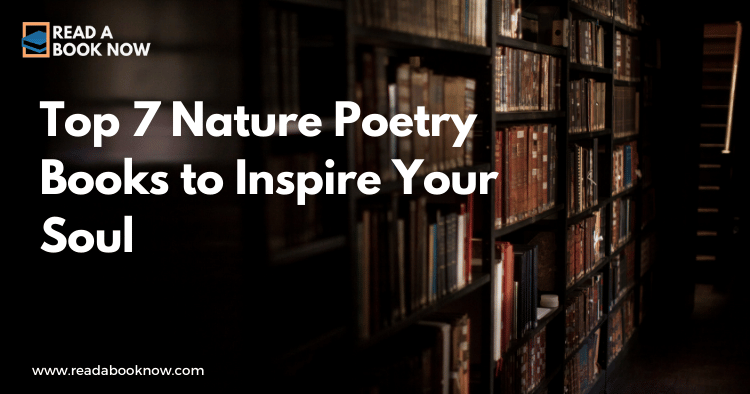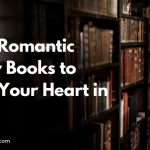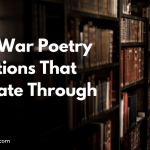Table of Contents
- Introduction
- 1. “The Poetry of Nature” by John Keats
- 2. “Wild Geese” by Mary Oliver
- 3. “The Lost Spells” by Robert Macfarlane and Jackie Morris
- 4. “The Forest” by Hilda Annersley
- 5. “The Essential Rumi” by Rumi
- 6. “A Sand County Almanac” by Aldo Leopold
- 7. “The Wild Braid” by Stanley Kunitz
- Conclusion
- FAQs
Introduction
Nature poetry has a unique ability to connect us to the world around us, evoking emotions and inspiring thoughts that resonate deeply within our souls. Through the eyes of poets, we can experience the beauty, tranquility, and sometimes the tumult of the natural world. Whether you are a seasoned poetry lover or new to this genre, these seven nature poetry books will surely inspire your soul and awaken your appreciation for the environment.
1. The Poetry of Nature by John Keats
John Keats is often celebrated as one of the most influential Romantic poets, and his work reflects an intense love for nature. “The Poetry of Nature” is a collection that encapsulates his passion for the natural world. Keats’ exquisite imagery and rich language transport readers to lush gardens, serene landscapes, and the intricate details of flora and fauna.
“A thing of beauty is a joy forever.” — John Keats
One of his most famous poems, “Ode to a Nightingale,” captures the ephemeral beauty of life as he contrasts the fleeting nature of human existence with the eternal song of the nightingale.
Why Read It?
Keats’ work is not only beautiful but also invites introspection, making it perfect for readers seeking a deeper connection with nature.
Recommended Resource:
For more on Keats and his contributions to poetry, visit the Poetry Foundation.
2. Wild Geese by Mary Oliver
Mary Oliver’s “Wild Geese” is a celebrated poem that speaks directly to the soul. In this piece, Oliver encourages us to embrace our true selves and reconnect with nature. The poem’s opening lines remind us that we don’t have to be perfect or conform to societal expectations to find our place in the world.
“You do not have to be good. You do not have to walk on your knees for a hundred miles through the desert, repenting.” — Mary Oliver
Highlights of the Book:
Oliver’s collection often reflects themes of solitude, belonging, and the beauty of the natural world. Her clear, accessible voice resonates with readers of all ages.
Why Read It?
Oliver’s poetry is both simple and profound, making it an excellent choice for those looking to find comfort and inspiration in nature.
Recommended Resource:
Learn more about Mary Oliver’s life and works at the American Academy of Arts and Letters.
3. The Lost Spells by Robert Macfarlane and Jackie Morris
“The Lost Spells” is a delightful collaboration between renowned nature writer Robert Macfarlane and illustrator Jackie Morris. This book is not just poetry; it’s an enchanting experience that combines lyrical verses with stunning illustrations of wildlife and nature.
“The world is a place of spells, and the spells are the words.” — Robert Macfarlane
Why Read It?
Each poem serves as a spell to evoke the magic of the natural world, encouraging readers to look closer at the environment around them. This book is perfect for both children and adults, making it a great family read.
Recommended Resource:
Discover more about the book on The Guardian’s website.
4. The Forest by Hilda Annersley
In “The Forest,” Hilda Annersley invites readers on an immersive journey through wooded landscapes. Her poetry captures the essence of the forest, highlighting its beauty, mystery, and the interconnectedness of all living things.
“In every walk with nature, one receives far more than he seeks.” — John Muir
Themes Explored:
Annersley explores themes of growth, decay, and the cyclical nature of life, reminding us that every element in the forest plays a vital role.
Why Read It?
This book is ideal for readers who appreciate the intricacies of ecosystems and the profound lessons nature has to teach us.
Recommended Resource:
For insights into Annersley’s thematic approach, check out this article on Literary Hub.
5. The Essential Rumi by Rumi
Rumi, a 13th-century Persian poet, is revered for his spiritual and philosophical insights. “The Essential Rumi” includes a selection of his most notable works, many of which draw inspiration from nature. His verses often reflect the beauty of the natural world as a metaphor for love, unity, and the soul’s journey.
“The wound is the place where the Light enters you.” — Rumi
Why Read It?
Rumi’s poetry transcends time and culture, offering wisdom that resonates with readers seeking deeper meanings in life and nature.
Recommended Resource:
Explore Rumi’s influence on poetry and spirituality at the Rumi Foundation.
6. A Sand County Almanac by Aldo Leopold
While not strictly a poetry book, Aldo Leopold’s “A Sand County Almanac” reads like a poetic ode to the land. This work combines scientific observation with lyrical prose, capturing the essence of the Wisconsin wilderness. Leopold’s reflections on the environment and conservation are both poignant and inspiring.
“There are two spiritual dangers in not owning a farm. One is the danger of supposing that breakfast comes from the grocery, and the other that heat comes from the furnace.” — Aldo Leopold
Why Read It?
This classic book encourages readers to appreciate and protect our natural environment, making it a must-read for nature lovers and activists alike.
Recommended Resource:
Learn more about Leopold’s legacy in environmental ethics at the Aldo Leopold Foundation.
7. The Wild Braid by Stanley Kunitz
Stanley Kunitz’s “The Wild Braid” is a beautiful exploration of the themes of aging, nature, and the creative process. Through his reflective poems, Kunitz intertwines personal experiences with the natural world, offering insights that resonate with readers of all ages.
“The artist is the creator of beautiful things. The critic is one who can translate into another manner or a new material his impression of beautiful things.” — Oscar Wilde
Why Read It?
Kunitz’s words inspire an appreciation for life’s fleeting moments and the enduring beauty of nature, making this collection a treasure for poetry enthusiasts.
Recommended Resource:
Discover more about Stanley Kunitz on the Academy of American Poets.
Conclusion
Nature poetry offers a profound connection to the world around us. The seven books highlighted above invite you to explore the beauty, wisdom, and inspiration that nature has to offer. Whether you seek solace in the written word or wish to ignite your creativity, these collections are sure to awaken your spirit and inspire your soul.
FAQs
Q: What is nature poetry?
A: Nature poetry is a literary genre that focuses on the beauty and complexities of the natural world. It often explores themes of interconnectedness, solitude, and the human experience in relation to nature.
Q: How can I find more nature poetry?
A: Look for anthologies in bookstores and libraries, or explore online literary journals that specialize in nature-themed poetry.
Q: Why should I read nature poetry?
A: Nature poetry can inspire mindfulness, foster a deeper appreciation for the environment, and encourage introspection, making it a valuable addition to anyone’s reading list.
Explore these wonderful collections and let the beauty of nature poetry inspire you!
Also look for more classic literature insights in our articles about 10 Timeless British Classics Everyone Should Read and 10 Essential Postcolonial Classics You Must Read Today.




